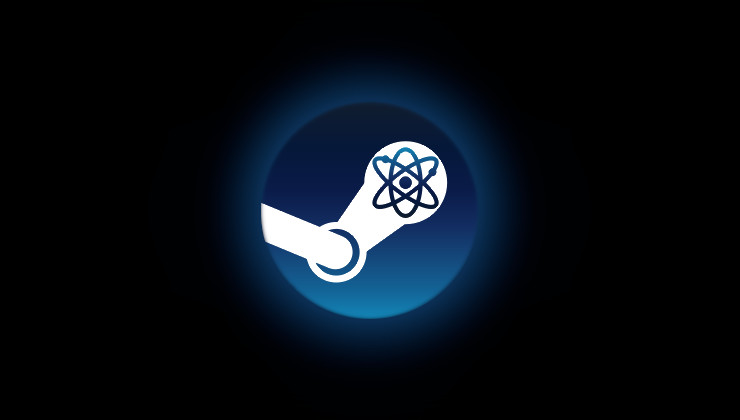It seems Valve are quite serious about getting back into making games, as Campo Santo the developer of Firewatch has joined them.
Writing on their official website in a post, the team from Campo Santo confirmed that the news is true. They said they found that people at Valve share the same values that they do, so it became an "obvious match". Expanding on that, they said this:
We had a series of long conversations with the people at Valve and everyone shared the satisfaction we take in working with people whose talents dwarf our own to make things we never thought possible. Both sides spoke about our values and how, when you get right down to it, we, as human beings, are hard-limited by the time we have left when it comes to making the things we care about and believe in. They asked us if we’d all be interested in coming up to Bellevue and doing that there and we said yes.
They confirmed that their next game, In the Valley of Gods, is still being made and so it's now a Valve game.
Personally, I think it's great that Valve are bringing in some obviously talented folk to make games. Valve have a lot of resources and contacts that can help for sure. It should also mean they have good Linux support, since Valve are still committed to Linux gaming.
Since it will now be a Valve game, it will be interesting to see if In the Valley of Gods will make it to GOG. I wouldn't expect it to now, but maybe Valve will surprise us there.
This really shows that legal speech is not literal 100% fit for *every and all* cases in real life. That's just how it is. Ideally, it should be, and I think everybody agrees on that. But I don't think it's possible every time. Every single legal document has this problem.
Edit: As English is not my native tongue: What does "may not" mean? Shouldn't it be "must not" for a definitive "don't ever do this"?
Last edited by Doc Angelo on 26 Apr 2018 at 10:14 am UTC
Edit: As English is not my native tongue: What does "may not" mean? Shouldn't it be "must not" for a definitive "don't ever do this"?It means "you are not allowed to" in this context.
People seem to have this misconception about steam. It is NOT DRM. It is a storefront which provides optional DRM. It is up to developers to use it. You can publish to steam without using the steam DRM. It's really easy to tell if a game has been DRMed. Run the executable from a terminal. If it changes your steam status then it's using the steam API and most likely will refuse to run without steam. If not then you can copy and move that game around and it will run just fine without steam. I know for example super hot is DRM free. There are others. Honestly even the DRM valve provides is really weak. They tell you on the steam works developer page not to rely on it for preventing piracy so even valve recognizes it's weak. Honestly I wouldn't even call it DRM. From a development standpoint it's a single method call that just ensures your game is running through steam which is technically DRM but it's also just a damn easy way to make sure any following calls to the steam API will go through.Valve can still release the game on Steam without DRM protection. Half-Life 2 is DRM free for example.
Steam itself is DRM.
Albeit it's the only one I accept and can live with, it is, per definition, DRM.
Last edited by Scoopta on 26 Apr 2018 at 10:32 am UTC
A storefront that can remove titles from your hard drive without your permission is, to me, if not DRM in name, then DRM in nature.
The reliance on Steam for many games is just as bad. No Steam? Can't play. Sometimes that turns into no Steam online, can't play. Technicalities aside, it's worth remembering that you can only play your games so long as Valve permit, and while it's technically possible to unhook some titles from Steam via (country dependent) legal personal backups, Valve don't exactly encourage that. Nothing against Valve there, more that people should really be more aware of what Steam really is.
I mean, this thread got derailed so much anyway, what the hell.
You're not wrong regarding DRMed titles on Steam. But this talk is about games on Steam without DRM. You can play those whenever you like.
Not necessarily. The games may depend on Steam features or libraries (there are games I cannot run because the "steam runtime" libs are borked).
There are some games that need specific libraries to run. That's an old problem with Linux gaming. I remember that I had to run Sid Meier's Alpha Centauri with a line like this: "LD_PRELOAD=/path/to/libraries ./SMAX". I bought this game retail on a disc, not for or via Steam. If anything, Valve made this more easy with their libs. A lot, I think.
If a game has certain features like leader boards or achievement but works otherwise, there is no problem if it still works as intended.
If there is no mechanism preventing you from copying the game files to another machine (without Steam installed) and the game still runs, there are DRM issues.
And you have to manually copy away from any Steam control. Otherwise Valve can basically delete your game anytime they want.
I assume you are talking about keys from various reseller sites that get deactivated when there was fraud involved. That of course sucks, but I made it a habit to never buy keys from dubious sources.
Apart from that, I never heard that Valve removed a game from a library.
Last edited by Doc Angelo on 26 Apr 2018 at 5:58 pm UTC
Neg. I mean they can delete your access to the game, and remove it from your hard drive entirely.
Never heard of that. Why would they do that? Do you have a source for that?
Yes, I have a source. Me. In details here, it was a demo, downloaded via Steam itself. It was later decided (either by Valve themselves, or a ratings board) that the demo wasn't suitable for the country. The next time I fired up Steam, the game (demo, in this case) was summarily removed in its entirety - without notification to me. I had to go hunting for what happened.
Thanks for the answer! Out of interest: Which developer decided to do that and which game was it?
Rebellion, with Sega as publisher. Demo was AvP (2010).
I assume it was this game and demo: https://steamdb.info/app/34200/depots/
Just out of interest: Did you really check the file system and all the files and the directory were gone? Or was the directory still there, and the last update was just "empty" and therefor updated the game directory with completely nothing - essentially deleting all files (except the directory)?
After some googling, I only found some demos and games that were delisted in the store, but still downloadable and accessible for people who already owned it.
I disagree simply because once you download a game from steam(assuming it doesn't use the steam DRM) nothing stops you from making a backup of it. Even if steam died the games on steam that don't use the DRM could still be played without going out of your way to circumvent anything. That's why I say steam is primarily a storefront not just DRM.People seem to have this misconception about steam. It is NOT DRM. It is a storefront which provides optional DRM. It is up to developers to use it. You can publish to steam without using the steam DRM. It's really easy to tell if a game has been DRMed. Run the executable from a terminal. If it changes your steam status then it's using the steam API and most likely will refuse to run without steam. If not then you can copy and move that game around and it will run just fine without steam. I know for example super hot is DRM free. There are others. Honestly even the DRM valve provides is really weak. They tell you on the steam works developer page not to rely on it for preventing piracy so even valve recognizes it's weak. Honestly I wouldn't even call it DRM. From a development standpoint it's a single method call that just ensures your game is running through steam which is technically DRM but it's also just a damn easy way to make sure any following calls to the steam API will go through.Valve can still release the game on Steam without DRM protection. Half-Life 2 is DRM free for example.
Steam itself is DRM.
Albeit it's the only one I accept and can live with, it is, per definition, DRM.
A storefront that can remove titles from your hard drive without your permission is, to me, if not DRM in name, then DRM in nature.
The reliance on Steam for many games is just as bad. No Steam? Can't play. Sometimes that turns into no Steam online, can't play. Technicalities aside, it's worth remembering that you can only play your games so long as Valve permit, and while it's technically possible to unhook some titles from Steam via (country dependent) legal personal backups, Valve don't exactly encourage that. Nothing against Valve there, more that people should really be more aware of what Steam really is.
I mean, this thread got derailed so much anyway, what the hell.
I disagree simply because once you download a game from steam(assuming it doesn't use the steam DRM) nothing stops you from making a backup of it.
Did you even follow the discussion above? You aren't allowed to do it if you are using Steam.
Yes, I have a source. Me. In details here, it was a demo, downloaded via Steam itself. It was later decided (either by Valve themselves, or a ratings board) that the demo wasn't suitable for the country. The next time I fired up Steam, the game (demo, in this case) was summarily removed in its entirety - without notification to me. I had to go hunting for what happened.
Thanks for the answer! Out of interest: Which developer decided to do that and which game was it?
Rebellion, with Sega as publisher. Demo was AvP (2010).
To be clear: Valve probably had a legal obligation to remove it based upon a review board, but I just like to point out their level of control that not everyone may be aware of. I was mostly irritated by their lack of notification on the matter.
yeah, it sucks when actions like this are not properly communicated and I can understand that you wouldn't trust Steam with your important stuff. It is indeed good to understand that Steam is much more an ecosystem for publishing content than just a wrapped browser for a store. That said, the ability to revoke games, e.g. when the key seems to originate from credit card fraud, is not necessarily a bad thing imho. There are still enough people out there thinking that key reselling is a sane business. I consider it positive that developers have something at their hands to act in cases of most easy/accessible/obvious forms of fraud.
Obviously with great power come great responsibility. I cannot imagine that Steam would revoke a normally purchased game, but if this is ever going to happen harsh responses from customers are justified. Excluded are cases where Steam would (be forced to) remove a game due to e.g. the game itself doing something not very legal, though proper communication is still a must in this cases. If my neighbor purchased a nuclear bomb I would also very glad that their are legal actions possible to prevent him from keeping it ;)
PS: Steam is only about games, similar with e.g. Netflix or Spotify it is only entertainment. I'm not that emotionally attached to it and would just move on. Actual personal data (e-mails etc) in cloud services is a different matter, though I'm much to lazy to maintain proper offline backups of that...
PPS: I had a reverse case recently. I wanted to remove a settings file from a game (Shadow Tactics) because after an update the game wouldn't start due to mangled settings. I had removed that file on disk, but initially it kept coming back due to Steam cloud synchronization ;)
Last edited by jens on 27 Apr 2018 at 7:08 am UTC
You're not allowed to photocopy a paperback either, that doesn't mean there's DRM in your stack of paper.I disagree simply because once you download a game from steam(assuming it doesn't use the steam DRM) nothing stops you from making a backup of it.
Did you even follow the discussion above? You aren't allowed to do it if you are using Steam.
You're not allowed to photocopy a paperback either, that doesn't mean there's DRM in your stack of paper.I disagree simply because once you download a game from steam(assuming it doesn't use the steam DRM) nothing stops you from making a backup of it.
Did you even follow the discussion above? You aren't allowed to do it if you are using Steam.
There are very different definitions here in this thread what DRM actually is/what the scope of it is/what degradation it has (direct rendering manager, anyone?? ;)). That's one of the reasons why this discussion starts again and again and runs in circles forever. The question "Is Steam DRM" is the wrong one imho. A much better question would be "Do I want to fully legally own digital assets (and are allowed to do no matter what I want to do with it) or do I merely want to use digital assets as there are intended to use (thus buying a permission to play) after doing a purchase in a digital store?". The last one is really just personal preference, something which is very hard to influence by facts.
Edit: replaced some parts I realized that could be read differently than I meant it...
Last edited by jens on 27 Apr 2018 at 9:32 am UTC
You're not allowed to photocopy a paperback either
You are allowed, for your personal backup. It's called fair use. DRM takes that away.
Last edited by Shmerl on 27 Apr 2018 at 12:35 pm UTC
You are allowed, for your personal backup. It's called fair use. DRM takes that away.
IMHO, that describes exactly the situation of DRM free games on Steam.
IMHO, that describes exactly the situation of DRM free games on Steam.
They are trying to take that away too. Exactly the difference with DRM-free stores that makes Steam not DRM-free :)
Last edited by Shmerl on 27 Apr 2018 at 12:52 pm UTC
IMHO, that describes exactly the situation of DRM free games on Steam.
They are trying to take that away too. Exactly the difference with DRM-free stores that makes Steam not DRM-free :)
They (paperback makers) are trying to take that away, too. No difference.
The makers don't want to you to, try to disallow it, but it's allowed by law in many countries.
Neither the paperbacks (obviously) nor DRM free games on Steam use digital means to prevent it.
The makers don't want to you to, try to disallow it, but it's allowed by law in many countries.
Sane countries should allow breaking DRM too. That doesn't make such stores DRM-free.
The makers don't want to you to, try to disallow it, but it's allowed by law in many countries.
Sane countries should allow breaking DRM too. That doesn't make such stores DRM-free.
You didn't show a difference to the paperback. Because there isn't any.
Disallowing copying is what every paperback does, just like the Steam store does.
And for many games, that's all what the Steam store does.
No digital rights-management (for those).
(The attempt of) juridical rights-management isn't digital.
Last edited by Eike on 27 Apr 2018 at 1:20 pm UTC
You didn't show a difference to the paperback.
The difference is more clarity. Physical goods have an instance to which you can apply common use cases such as first sale doctrine and the like. Digital case is more complicated and way less consistent. And various owners try to get away with messing up the rights of the user.
Last edited by Shmerl on 27 Apr 2018 at 1:20 pm UTC







 How to set, change and reset your SteamOS / Steam Deck desktop sudo password
How to set, change and reset your SteamOS / Steam Deck desktop sudo password How to set up Decky Loader on Steam Deck / SteamOS for easy plugins
How to set up Decky Loader on Steam Deck / SteamOS for easy plugins
See more from me